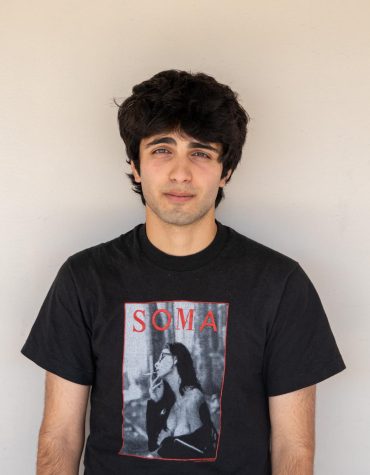Campus Equity Work Must Include MENA Community
Due to the tireless efforts by community activists and leaders to eradicate discrimination and prejudice on campus, there has been a noticeable shift in school culture. People have generally become much more aware of the impact of their words and actions. Staff and students alike, led by Leadership Equity Council (LEC), have become much more serious about holding students accountable for insensitive remarks.
However, not all is rosy, and Campo still has a long way to go in its goal to improve its environment. As much as many minority groups have made strides in improving their conditions at school, many groups have been left behind. 1 such group is the Middle Eastern and North African (MENA) community. This community is incredibly diverse, consisting of people from a wide range of ethnicities, religions, and countries.
MENA people have been consistently discriminated against for decades. Many assume that all Middle Eastern and North African people are associated with Islamic terrorism. Although obviously terrorism is unfortunately prevelant in some areas of the Middle East and North Africa, the vast major of people in this region have absolutely nothing to do with it. Furthermore, people that live in this region are the ones most negatively affected by terrorism.
Because comon media narratives falsely portray Islam as a violent religion, many Americans have a negative view on Islam, the majority religion of the Middle East and North Africa. According to the Associated Press-NORC Center for Public Affairs, 53% of Americans have unfavorable views toward Islam, compared with 42% who have favorable ones.
Racism against MENA people is extremely rampant. I remember during my freshman year, someone asked me, “Are you sure you aren’t a part of ISIS.” Another time, someone yelled “Allah Akbar,” which means God is Great in Arabic and is frequently chanted by terrorists, when I was walking to class. I tended to brush aside these hateful remarks, and always pretended that these comments didn’t hurt me. Even this year, I still overhear jokes disparaging MENA people. I have never once heard any of these racist comments be challenged.
As an Iranian American, I have noticed that many Americans are quick to make assumptions and generalizations about Middle Eastern people. For instance, many people assume that I am Arab just because I am from the Middle East. This is blatantly ignorant, as many different ethnicities call the Middle East home, like Persian, Pastun, Israeli, or Turkish people that are not Arab. The Middle East also has a diverse religious culture, with Muslims, Jews, Christians, and Zoroastrians coexisting together.
There is an obvious lack of MENA history and culture taught in the curriculum at Campolindo. In fact, the only time I can remember the Middle East and North Africa being taught and discussed in any of the history classes I have taken at Campo is when talking about the wars in Afghanistan and Iraq. The richness of MENA culture is also forgotten and not talked about because of the eurocentric nature of our curriculum. Finally, contributions made by MENA people to a wide range of fields, including mathematics, philosophy, and astronomy, are overlooked. For instance, Middle Eastern scholars invented algebra and developed the numeral system we use today.
Campo must take a firm stand against hateful rhetoric against MENA people. We have been ignored for far too long, and our time is now to stand up. There must be improved MENA education and awareness. Community leaders must include the MENA community in their activism and fight of justice. Martin Luther King Jr. said it best: “Injustice anywhere is a threat to justice everywhere.”
Your donation will support the student journalists of Campolindo High School's The Claw. Your contribution will allow us to produce more issues and cover our annual website hosting costs.

Senior Dara Kashayar has a love of traveling. As an avid traveler, Kashayar has spent time in many countries across the globe.
Spending time around...

